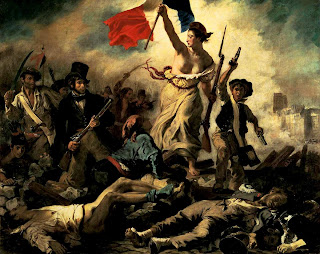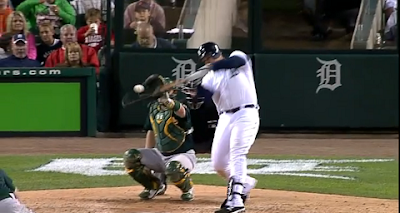Retribution picks up where Zero Point leaves off, which is brutally. It's always good to put a corpse in your first chapter. And I think you could easily regard both Zero Point and Retribution as mystery novels. And this fits with the corpse in the hotel room.
A detective of the local constabulary on one of the planets of the dystopian Union gets the homicide case. And this case has him almost immediately frozen out of the investigation by the federales who run the Union. You see, the victim is a spy and he's been offed by some deadly people we met in Zero Point.
 This is a risky move on Mr. Thornton's part, because the killers are the people we grew to like in Zero Point, and the detective is a policeman in a police state. It's easy to start rooting against Our Heroes and the detective, Roland Hendrick, seems like not a bad sort. Despite being a cop in a police state.
This is a risky move on Mr. Thornton's part, because the killers are the people we grew to like in Zero Point, and the detective is a policeman in a police state. It's easy to start rooting against Our Heroes and the detective, Roland Hendrick, seems like not a bad sort. Despite being a cop in a police state.The story moves along nicely and we discover the homicide was sorta justified and the victim was not a nice person. You see, Our Heroes are seeking justice and the vic has the blood of the crew of the starship Marco Polo on his hands.
The perspective quickly shifts to Volya and the beautiful Alainn, who show the circumstances of the killing and the process they follow to investigate the crimes perpetrated by the conspiracy that made up the bulk of Zero Point.
 They leave Alainn's home planet, that I call Galt's Gulch In Space, and return to the dystopian Union where Mr. Thornton hits the reader over the head with the fact that when guns are outlawed, only outlaws have guns. Don't the police have guns? Yes, they do. I said, only outlaws have guns.
They leave Alainn's home planet, that I call Galt's Gulch In Space, and return to the dystopian Union where Mr. Thornton hits the reader over the head with the fact that when guns are outlawed, only outlaws have guns. Don't the police have guns? Yes, they do. I said, only outlaws have guns.Along the way they break up some human trafficking and figure out who screwed over Volya. Despite having some difficulties with the local police and one huge red herring, they end up figuring out who did what and meting out justice.
 In the process Volya comes to understand scope-creep in the business of seeking justice. And though it was not explicitly stated, Retribution says something more about the Union (and by extension those aspects of our own society that mirror it).
In the process Volya comes to understand scope-creep in the business of seeking justice. And though it was not explicitly stated, Retribution says something more about the Union (and by extension those aspects of our own society that mirror it).Pretty much every character in both novels who is a Union citizen has direct experience with government malfeasance and cover-up. The first novel gives you the impression the Union is uniformly an Evil Empire on the order of yet another Obama/Bush term. But the second novel shows that overarching state control without checks & balances breeds lawlessness at every level. Whenever anything goes wrong in anything as small as an traffic stop in space, or an act of state-sponsored piracy, the regime of cover-up and scapegoating establishes a web of lies to perpetuate the status quo.
 That's the good news, both for Volya and Alainn, and for us. The revolution doesn't consist of a violent overthrow of those in power, because if that's all we get, you'll find the new boss is just like the old boss. To the contrary, the revolution is a matter of establishing personal integrity, and insisting upon it in everyone around you.
That's the good news, both for Volya and Alainn, and for us. The revolution doesn't consist of a violent overthrow of those in power, because if that's all we get, you'll find the new boss is just like the old boss. To the contrary, the revolution is a matter of establishing personal integrity, and insisting upon it in everyone around you. I said it's good news, because it's a personal, not a political thing. Edmund Burke asserted that Freedom and Liberty require virtue in the general public. The virtuous citizen will generally get along with others, tell the truth, and expect the truth from his elected representatives.
I said it's good news, because it's a personal, not a political thing. Edmund Burke asserted that Freedom and Liberty require virtue in the general public. The virtuous citizen will generally get along with others, tell the truth, and expect the truth from his elected representatives.But Steve, your moralizing is only to individuals, not the collective. What if the collective lies and accepts liars? In that case, we get the government we deserve. And if you want to see one vision of what that's like read Abraham Thornton's Union stories.





















.jpg)







_-_DN-SD-06-03578.jpg)


















